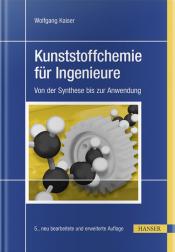plasticker-News
| 09.01.2002 | Lesedauer: ca. 4 Minuten |

|
Recovery rates show need for flexibility
|
A new report reveals the huge difference in rates for plastics packaging waste recovery that currently exist across Western Europe. Recovery levels vary from between four and 85 per cent from country to country, highlighting the need for a flexible approach when deciding targets for European plastics waste management.
'Plastics - a material of choice for the packaging industry', produced by the Association of Plastics Manufacturers in Europe (APME, Avenue E van Nieuwenhuyse 4, B-1160 Brussels, Tel. + 32 2 676 17 40 Fax. + 32 2 675 39 35, www.apme.org), provides the most comprehensive and up-to-date data on consumption and recovery rates for plastics packaging in Western Europe. The report also shows that in terms of the overall recovery of plastics packaging waste, rates for top performing countries reached a plateau between 1998 and 1999, while those at the bottom end of the ranking have improved. Seven countries achieved recovery rates of around 50 per cent or above in 1999 - Denmark (85%), Sweden (79%), The Netherlands (73%), Germany (70%), Austria (66%), Belgium (55%) and France (49%). However, only five countries have so far managed to meet the minimum recycling rate of 15 per cent currently required by the Packaging and Packaging Waste Directive - Germany (51%), Austria (35%), Belgium (21%), Sweden (17%), and The Netherlands (17%). This is due to a number of factors, including infrastructure, geography and demography as well as markets for recycled plastics. This information is particularly relevant as targets for recycling and other recovery options for packaging waste, such as energy recovery, are currently being re-examined at European legislative level. Freddy Marechal, packaging expert at APME's Technical and Environmental Centre says: "The European plastics industry believes that any increase in existing levels for packaging waste recycling would be unrealistic for the many countries that are already falling short of current targets. In addition, solutions to plastics waste management should be first and foremost eco-efficient, taking into account economic and environmental, as well as local considerations. Where eco-efficient recycling is not achievable, mixed plastics waste can be safely and cleanly substituted for fossil fuels in energy recovery schemes. In Gothenburg, Sweden, for example, more than 70 per cent of the city's heating is now provided by the incineration of general waste." Other results show that the packaging sector continues to be the largest consumer of plastics. In 1999, 13 464 000 tonnes of plastics, approximately 40 per cent of total plastics applications, were used for packaging. Some 50 per cent of all Europe's goods are now packaged in plastics, yet by weight these plastics account for only 17 per cent of all packaging. The report also highlights how, thanks to continuing innovation by the plastics industry, plastics play an important role in sustainable development. Plastics continue to do more with less - in the last 10 years, plastics packaging for a given unit has seen an average decrease in weight by 28 per cent. This represents a reduction of around 2 million tonnes - a vital contribution to resource efficiency alongside the 1.9 million tonnes of plastics packaging which are recycled annually as well as an additional 2.3 million tonnes recovered as energy. The Association of Plastics Manufacturers in Europe (APME) is the voice of the polymer producing industry at European level. Its membership today includes more than 40 companies representing well over 90 per cent of Western Europe's polymer production, with a turnover of more than 29 billion Euro. Combined with the European polymer converting industry and the machinery manufacturers, the plastics industry represents a major contributor to Europe's economic strength employing well over one million people and generating sales in excess of 135 billion Euro. Copies of 'Plastics - a material of choice for the packaging industry' can be requested from APME (T: +32 2 676 1740) or downloaded from APME's web site. |
Association of Plastics Manufacturers in Europe, Brüssel, Belgien
» insgesamt 3 News über "APME" im News-Archiv gefunden
Ihre News im plasticker? Bitte senden Sie Ihre Pressemitteilungen an redaktion@plasticker.de!
| » zurück zum Seitenanfang |











 Wir informieren Sie schnell, umfassend und kostenlos über das, was
in der Branche passiert.
Wir informieren Sie schnell, umfassend und kostenlos über das, was
in der Branche passiert.

